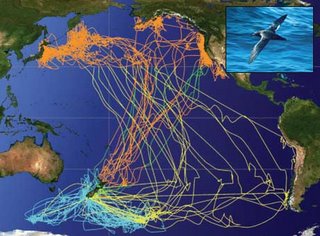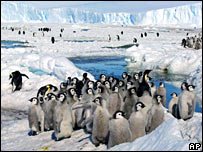
Scientists think they've discovered the world's greatest commuter. Sooty shearwater birds travel an amazing 40,000 miles (64,000 kilometres) each year, from New Zealand all the way to the northern Paciic area, the longest migration yet recorded. As National Geographic News reports, a team of research biologists at the University of California, Santa Cruz, placed electronic tags on the birds as they left the Southern Hemisphere during winter and headed for their summer feeding grounds in the Northern Hemisphere.
"It was really amazing to see the distance they were traveling," said Scott Shaffer, one of the team.
Shaffer and his colleagues plotted maps of the shearwaters flight paths. They look like giant figures of eight over the Pacific Ocean.
The Arctic tern is the shearwaters main rival for long-distance travelling. The tern also commutes from the southernmost parts of the globe to the far north each year. Their exact routes haven't been tracked because the birds are too small to be tagged. The results of the shearwater study are published in the early online edition of the Proceedings of the National Academy of Sciences.
